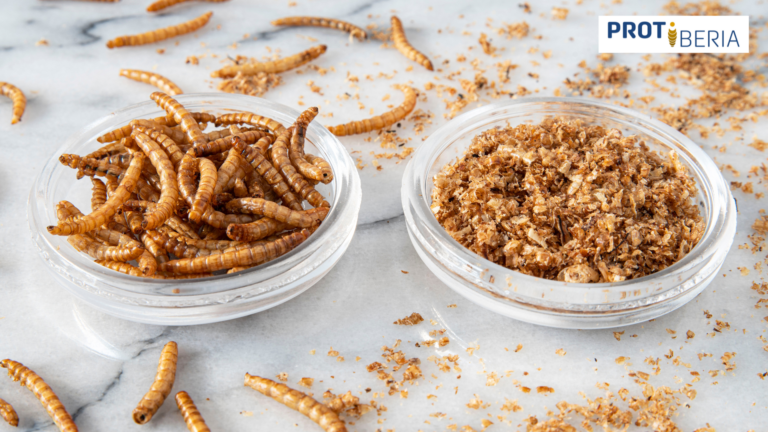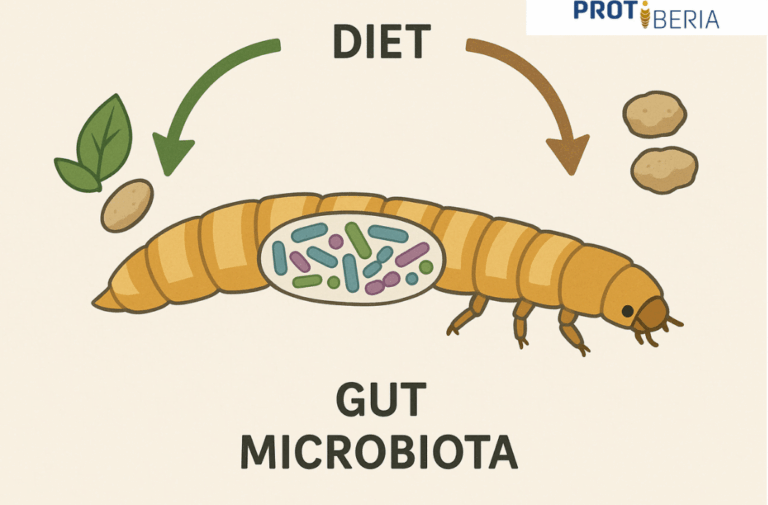| In this article, we will explore in detail some of the existing barriers in the establishment and operation of insect farms and how they affect the viability and development of this emerging industry. |
The growing global demand for food and sustainable resources has led to a deeper exploration of innovative alternatives in the production of proteins and other derived products. Among these alternatives, insect farming at an industrial level has emerged as a promising solution due to its resource efficiency and its potential to address the challenges associated with food security and environmental sustainability. However, the establishment and operation of new insect breeding farms in an industrial environment is not without significant challenges that act as entry barriers.
1. Complex Regulatory Framework
One of the most notable barriers for new insect farming at an industrial level is the complex and sometimes ambiguous regulatory framework that surrounds this activity. Since insect farming is a relatively new concept, there are not many or clear regulations in many countries. This can create uncertainty and difficulties in obtaining the necessary permits and licenses to operate, which in turn can delay or even discourage entrepreneurs interested in entering this industry.
2. Initial Financial Investment
Insect farming at an industrial level requires a substantial investment in infrastructure, equipment and specialized technology. The construction of adequate facilities to house the insect colonies, the implementation of environmental control systems and the acquisition of feeding and processing equipment are essential elements for the success of an insect breeding farm. These initial costs can be a limit for small businesses or individual entrepreneurs who may not have the necessary financial resources. In addition, investment in technology and staff training is necessary to ensure efficient and high-quality breeding practices.

3. Specific Technology and Technical Knowledge
Insect farming at an industrial level requires a deep knowledge of the biology, behavior and nutritional requirements of the selected species. Developing and optimizing breeding methods, controlling environmental conditions, preventing diseases and maximizing production are tasks that demand technical and scientific expertise. The lack of access to updated research, empirical data and specific educational resources can hinder the adoption and successful implementation of advanced insect breeding practices. As technology evolves, insect breeding farms may also face challenges to keep up with the latest innovations and best practices.

4. Market and Consumer Acceptance
The introduction of insects as a source of protein in the human and animal diet poses challenges in terms of consumer perception and acceptance. Despite their nutritional and environmental potential, the idea of consuming insects can generate cultural and psychological resistance in many societies. Convincing consumers that insect-derived products are safe, tasty and beneficial for health may require a large-scale awareness and education campaign. The creation of a stable demand and the construction of a solid reputation in the market may take time and considerable efforts
5. Supply of Raw Materials
Successful insect breeding depends largely on a reliable and sustainable source of raw materials to feed the colonies. This may include agricultural waste, by-products of the food industry and other types of organic matter. However, the availability and access to these sources may be inconsistent, especially in times of great uncertainty like now, or in regions where competition for agricultural and food resources is already high. Seasonal fluctuations in the availability of raw materials may also affect the stability of production and the economic viability of insect breeding farms.
6. Ethical and Animal Welfare Aspects
Insect farming raises ethical and animal welfare issues that need to be addressed appropriately to ensure responsible and sustainable practices. As awareness of ethical animal treatment intensifies, insect breeding farms may face public and regulatory scrutiny in relation to the breeding conditions, transportation and slaughter of insects.
7. Competition with Traditional Protein Sources
The adoption of insect farming at an industrial level as a main source of protein may encounter the established competition of traditional protein sources, such as meat, fish or soy. The conventional food industry already has consolidated supply chains, efficient distribution networks and established business models. Convincing the industry actors, including producers, distributors and consumers, that insect-derived products are a viable and attractive alternative, that complements these other proteins, may require continuous efforts of marketing, education and awareness.



